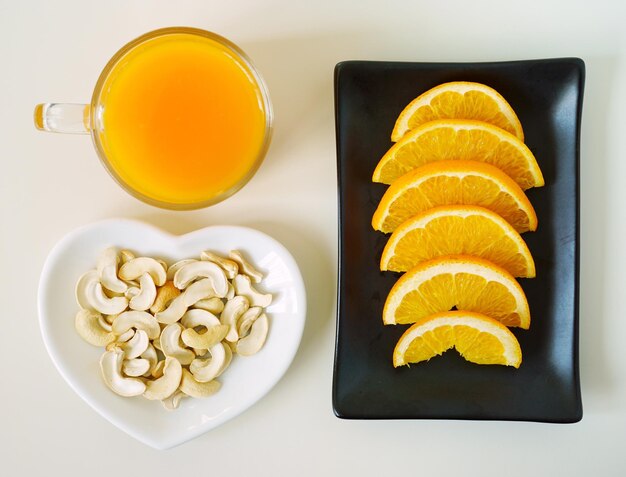For decades, “fat” was a dirty word in nutrition. Low-fat everything filled the
shelves, and we were told that eating fat would make us, fat. But here’s the
truth: your body needs fat especially the right kinds of fat to function at
its best. Healthy fats fuel your brain, support hormone production, absorb
nutrients and help fight inflammation. In fact, some high-fat foods are
among the most nutrient-dense foods on the planet.
Let’s bust the myth and take a look at 10 high-fat foods that are not
only safe to eat but actually great for your health
1. Avocados
Fat content is approx. 15g per 100g (mostly monounsaturated). Avocados
are creamy, delicious and full of heart-healthy monounsaturated fats, the
same kind found in olive oil.
Health Benefits:
Lowers LDL (bad) cholesterol
Boosts absorption of fat-soluble vitamins (A, D, E, K)
Packed with potassium and fiber
�
� Pro tip: Add sliced avocado to salads, smoothies or toast for a satisfying
fat boost.
2. Extra Virgin Olive Oil
Fat content is approx. 100% fat (mostly monounsaturated). A staple of the
Mediterranean diet, olive oil is rich in antioxidants and anti-inflammatory
compounds.
Health Benefits:
Protects against heart disease
May lower blood pressure and inflammation
Supports healthy aging and cognitive function
�
� Use it raw on salads or drizzle over cooked vegetables. Heat can degrade
its beneficial compounds.
3. Fatty Fish (Salmon, Mackerel, Sardines,
Herring)
Fat content is approx.13g per 100g (high in omega-3s). Fatty fish are
loaded with EPA and DHA, the most bioavailable forms of omega-3 fatty
acids.
Health Benefits:
Supports heart, brain, and eye health
Reduces inflammation and triglycerides
May help manage anxiety and depression
�
� Aim for 2 servings per week for optimal benefits.
4. Nuts (Almonds, Walnuts, Pistachios,
etc.)
Fat content is approx. 50–70% fat (varied healthy fats). Nuts are
nutritional powerhouses: high in fat, yes — but also protein, fiber, and
antioxidants.
Health Benefits:
Help control blood sugar and appetite
Improve cholesterol profiles
Support brain and skin health
�
� Go raw or dry-roasted. Avoid heavily salted or sugar-coated versions.
5. Chia Seeds
Fat content is ~31g per 100g (omega-3 ALA). These tiny seeds are packed
with fiber and plant-based omega-3s — plus, they form a gel-like texture
that’s great for digestion.
Health Benefits:
Reduce inflammation
Promote satiety and gut health
Stabilize blood sugar
�
� Add to oatmeal, smoothies, or make chia pudding.
6. Dark Chocolate (70% or higher)
Fat content is ~42g per 100g. Dark chocolate is rich in healthy fats, fiber,
iron, and powerful antioxidants like flavonoids.
Health Benefits:
Improves blood flow and heart health
May enhance brain function
Boosts mood and reduces stress hormones
�
� Stick to 1–2 squares a day. Look for options low in sugar and high in
cacao.
7. Whole Eggs
Fat content is ~10g per egg (mostly in yolk). Eggs were once unfairly
demonized. Today, they’re known as one of the most complete proteins —
and their yolks are packed with nutrients.
Health Benefits:
High in choline (essential for brain and liver)
Doesn’t raise cholesterol in most people
Rich in vitamin D and antioxidants like lutein
�
� Eat the yolk! That’s where the good fats and micronutrients live.
8. Full-Fat Greek Yogurt
Fat content is ~5–10g per serving. Creamy, tangy, and packed with
probiotics — full-fat Greek yogurt supports gut and metabolic health.
Health Benefits:
Strengthens the gut microbiome
Supports muscle recovery
Helps regulate blood sugar
�
� Choose unsweetened, plain yogurt. Add berries or nuts for flavor.
9. Coconut & Coconut Oil
Fat content is 33g per 100g (mostly saturated MCTs), while coconut
contains saturated fat, it’s primarily medium-chain triglycerides (MCTs)
— which are processed differently than typical saturated fats.
Health Benefits:
Rapid energy source
May support brain health (used in Alzheimer’s research)
Antimicrobial and anti-inflammatory properties
�
� Use in moderation. Great for sauteing or in smoothies.
10. Cheese
Fat content is ~27g per 100g (varies by type). Cheese is nutrient-rich and
surprisingly good for you in moderation. It’s a great source of protein, fat,
calcium, and even vitamin K2.
Health Benefits:
Builds strong bones and teeth
Contains conjugated linoleic acid (CLA) for fat metabolism
Promotes satiety
�
� Go for aged or fermented cheeses. Look for fewer additives and lower
sodium.
Final Word: Don’t Fear the Fat
Healthy fats are essential for:
✅ Brain and hormone function
✅ Heart and joint health
✅ Better absorption of nutrients
✅ Long-lasting satiety
But steer clear of:
Artificial trans fats
Highly processed seed oils
Deep-fried fast foods
Build a Balanced Plate:
For optimal health, pair healthy fats with:
Lean proteins (chicken, tofu, fish)
Whole grains (quinoa, oats, brown rice)
Colorful vegetables and fruits

